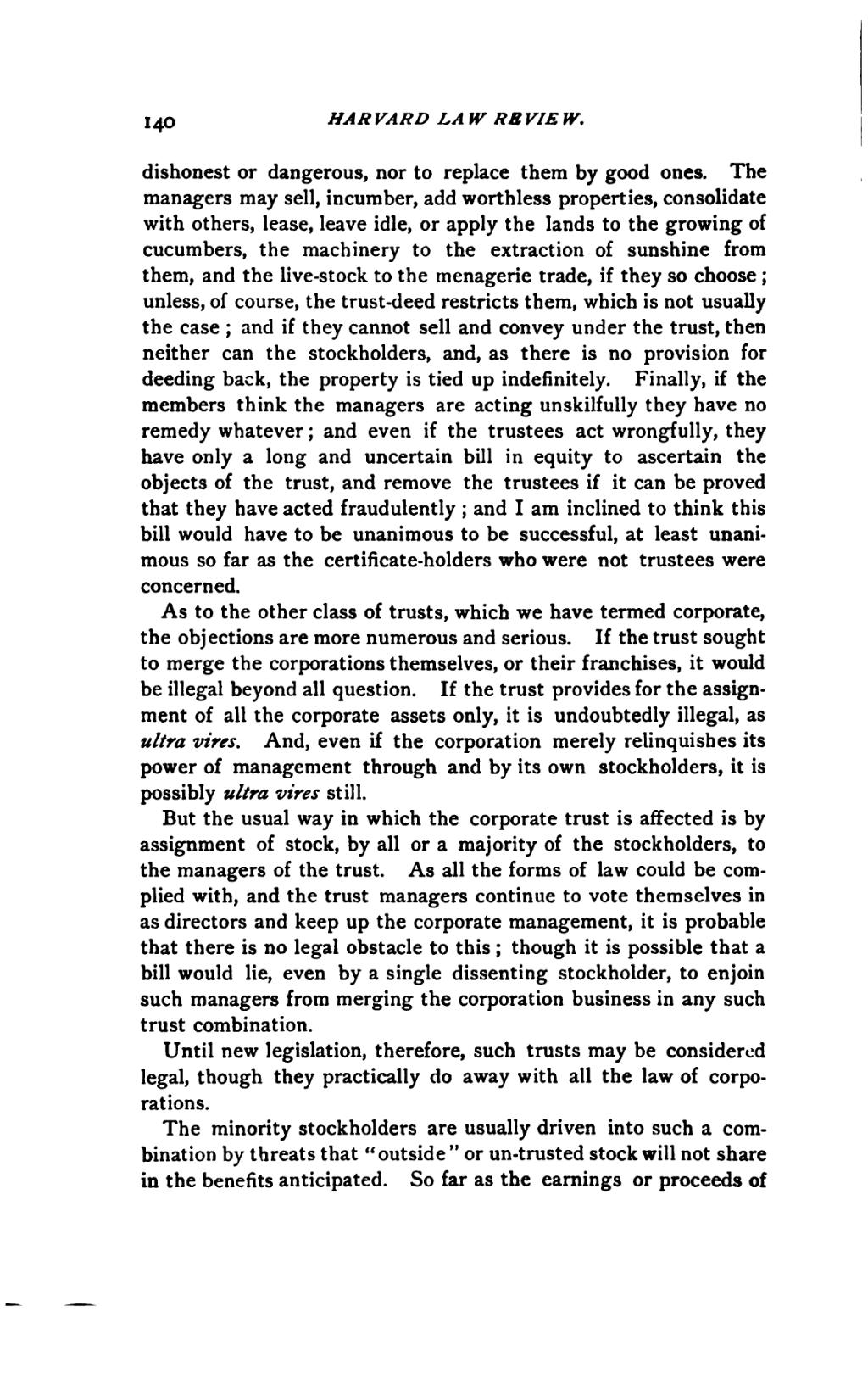dishonest or dangerous, nor to replace them by good ones. The managers may sell, incumber, add worthless properties, consolidate with others, lease, leave idle, or apply the lands to the growing of cucumbers, the machinery to the extraction of sunshine from them, and the live-stock to the menagerie trade, if they so choose; unless, of course, the trust-deed restricts them, which is not usually the case; and if they cannot sell and convey under the trust, then neither can the stockholders, and, as there is no provision for deeding back, the property is tied up indefinitely. Finally, if the members think the managers are acting unskilfully they have no remedy whatever; and even if the trustees act wrongfully, they have only a long and uncertain bill in equity to ascertain the objects of the trust, and remove the trustees if it can be proved that they have acted fraudulently; and I am inclined to think this bill would have to be unanimous to be successful, at least unanimous so far as the certificate-holders who were not trustees were concerned.
As to the other class of trusts, which we have termed corporate, the objections are more numerous and serious. If the trust sought to merge the corporations themselves, or their franchises, it would be illegal beyond all question. If the trust provides for the assignment of all the corporate assets only, it is undoubtedly illegal, as ultra vires. And, even if the corporation merely relinquishes its power of management through and by its own stockholders, it is possibly ultra vires still.
But the usual way in which the corporate trust is affected is by assignment of stock, by all or a majority of the stockholders, to the managers of the trust. As all the forms of law could be complied with, and the trust managers continue to vote themselves in as directors and keep up the corporate management, it is probable that there is no legal obstacle to this; though it is possible that a bill would lie, even by a single dissenting stockholder, to enjoin such managers from merging the corporation business in any such trust combination.
Until new legislation, therefore, such trusts may be considered legal, though they practically do away with all the law of corporations.
The minority stockholders are usually driven into such a combination by threats that “outside” or un-trusted stock will not share in the benefits anticipated. So far as the earnings or proceeds of
